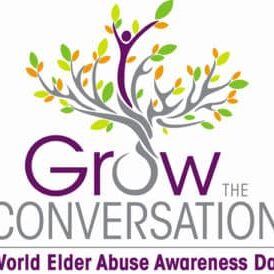March 26th is Epilepsy Awareness Day. You may have heard of Epilepsy, but did you know that it affects an increasing number of older adults? Today on the blog we’re going to explore Epilepsy- what it is, how it affects older adults, and what resources exist in the community.
What is Epilepsy?
According to the Cleveland Clinic, Epilepsy is a chronic disease where the cells in the brain produce abnormal electrical signals, causing seizures. Approximately 3.4 million people in the United States live with Epilepsy. Epilepsy can be treated with daily medication.
Epilepsy & Older Adults
Older adults (age 55+) are the fastest growing group of Epilepsy patients. It’s estimated that there are nearly 1 million older adults living with Epilepsy in the United States. In older adults, strokes may cause symptoms that resemble other health conditions, such as wandering, confusion, dissociating, or the inability to speak (all of which can resemble Alzheimer’s Disease or Dementia). Unfortunately, many antiseizure medications put older adults at an increased risk of falling due to side effects including dizziness and loss of balance. Talk with your doctor if you have any concerns about your medication (we’ve also covered basic fall prevention tips on the blog in the past).
Managing Epilepsy
While seizures can be unpredictable, there are some small steps people with Epilepsy can take that may improve their seizure control and overall health.
- Stay on top of medication.
- Missing medication is the leading trigger for seizures.
- How Can You Make Sure You Take Your Medicine As Directed? via Senior Resource Connect
- How to save money on prescription medications via Senior Resource Connect
- Get a good night’s sleep.
- Sleep deprivation can also trigger seizures.
- Stay active.
- Eat a healthy diet and know how certain foods or drinks (e.g., alcohol, caffeine) affect your seizures.
- Reduce stress.
- Keep a record of your seizures– what happened before, during and after the seizure, any triggers you can identify, and any patterns you notice.
- Develop a Seizure Action Plan and share it with loved ones.
What To Do If Someone Is Having a Seizure (Stay-Safe-Side) via Michigan Medicine
- STAY with the person until they are alert and the seizure has passed.
- Make sure to time the seizure.
- Make sure the person having the seizure is in a SAFE place.
- Turn the person on their SIDE to keep their airway clear.
- Also make sure to loosen any clothing/jewelry that may be tight around their neck.
- Make sure there’s something soft under their head.
- When to call 911:
- If the seizure lasts longer than 5 minutes.
- If the person has multiple seizures one after the other.
- If the person has difficulty breathing, chest pain, or does not regain alertness after the seizure.
- If the person became injured during the seizure.
- If the seizure occurs in water.
Local & National Resources
- Epilepsy Foundation’s 24/7 Helpline: 1-800-332-1000
- Spanish hotline: 1-866-748-8008
- Epilepsy Foundation of Michigan’s Here For You Helpline: 1-800-377-6226
- Project UPLIFT via the Epilepsy Foundation of Michigan
- Evidence-based depression management program for adults with Epilepsy. This program runs for 8 weeks and is conducted over the phone.
- Seizure Response Dogs via Paws With A Cause ($50 application fee)
- Seizure Smart Mental Health Professional Network– this is a list of therapists that have completed the Epilepsy Foundation of Michigan’s training on seizures and mental health.
- Steve Metz Memorial Grant via The Defeating Epilepsy Foundation
- Offers a one-time grant in the amount of $1,000 towards a seizure alert dog.
- University of Michigan Comprehensive Epilepsy Program (734) 936-9020






